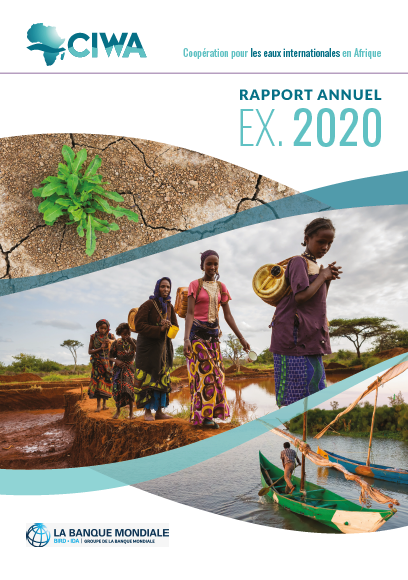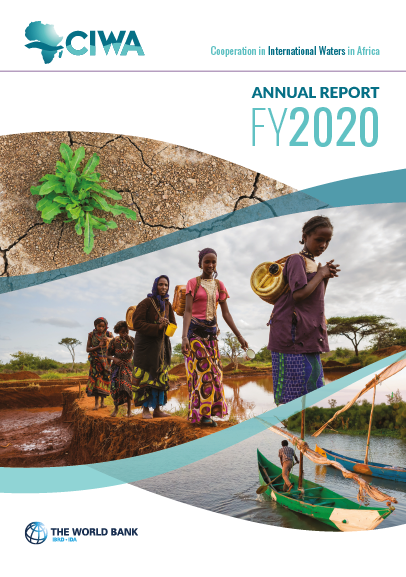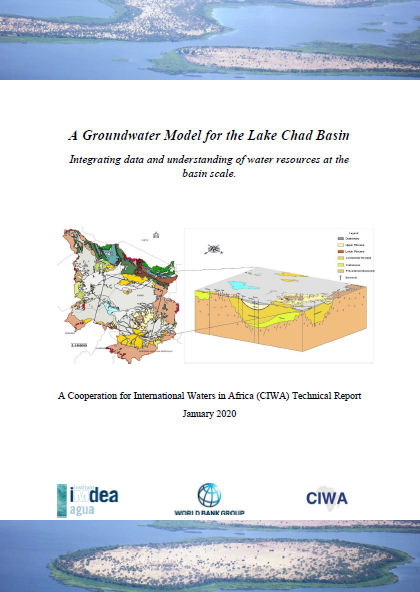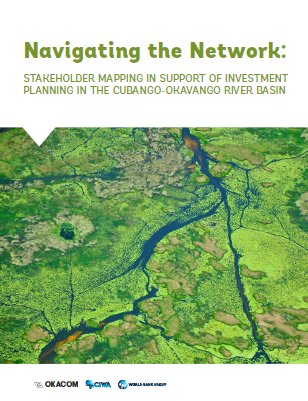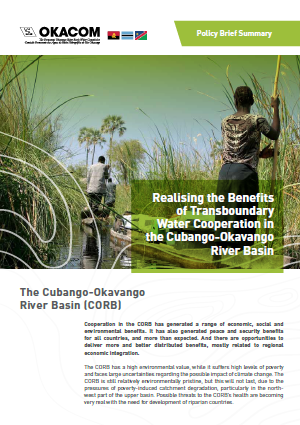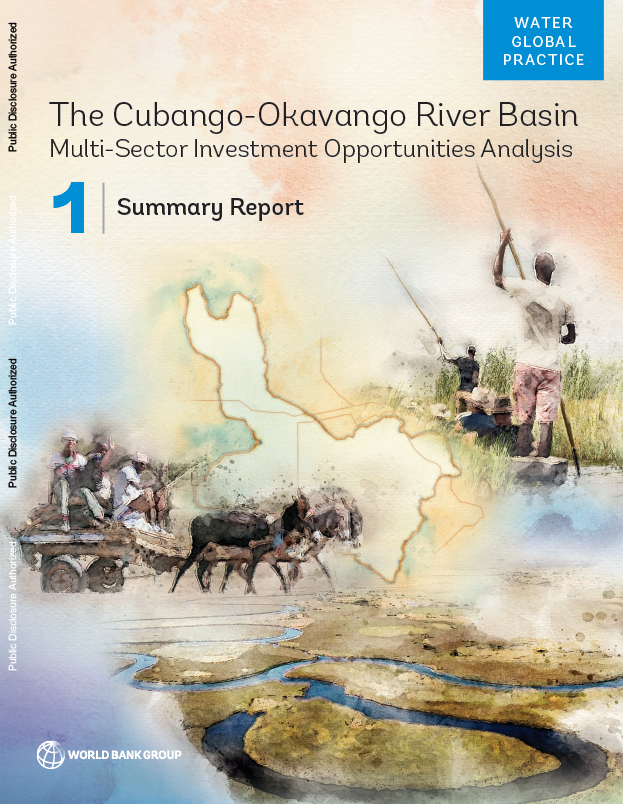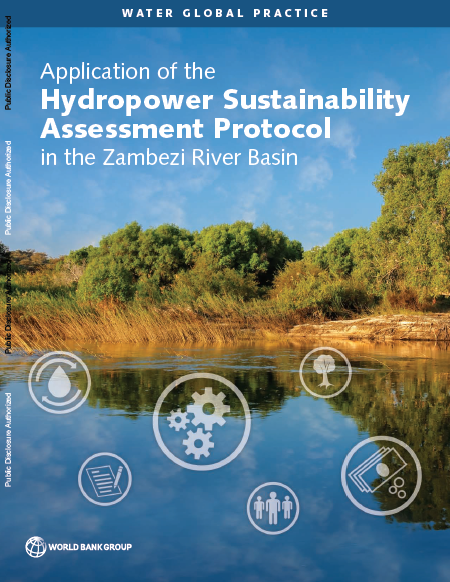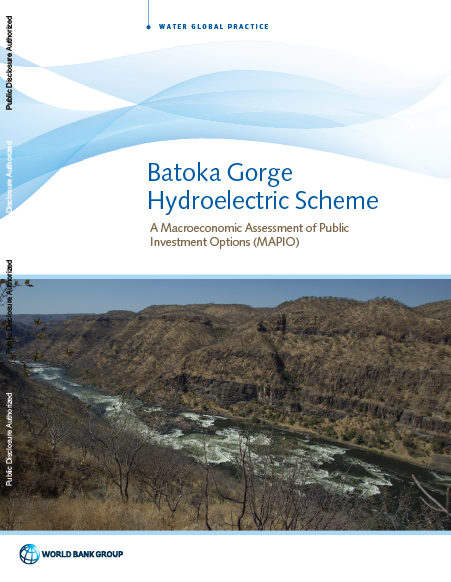2020 CIWA Annual Report (French)
Posted in : on 24 February 2021
As the CIWA program enters its tenth year, we look back at how CIWA support has helped navigate complexities and unique political economies, using lessons learned to achieve stronger programming and impact on the ground.
2020 CIWA Annual Report (English)
Posted in : on 8 December 2020
As the CIWA program enters its tenth year, we look back at how CIWA support has helped navigate complexities and unique political economies, using lessons learned to achieve stronger programming and impact on the ground.
A Groundwater Model for the Lake Chad Basin Integrating data and understanding of water resources at the basin scale
Posted in : on 30 January 2020
This report integrates data and knowledge across the Lake Chad Basin and from past hydrogeological work in different parts of the basin, creating an integrative and basin-wide understanding of groundwater resources and their dynamics.
Authors: L. Candela, F.J. Elorza, N. Salehi, G. Vaquero, & D. García-Martínez
Navigating the Network: Stakeholder Mapping in Support of Investment Planning in the Cubango-Okavango River Basin
Posted in : on 15 July 2019
The Cubango-Okavango River is one of the world’s most unique, near pristine free-flowing rivers and central to sustainable economic development within the arid landscapes of the basin. In 1994, Angola, Botswana, and Namibia established the Permanent Okavango River Basin Water Commission (OKACOM) to promote coordinated and sustainable water resources management while addressing the social and economic needs of the Member States.
The Multi-Sector Investment Opportunities Analysis (MSIOA) is part of a systematic strategy by OKACOM to assist the Member States to achieve socially just, economically prosperous, and environmentally healthy development of the Cubango-Okavango River Basin.
Authors: CIWA, World Bank, OKACOM
Realising the Benefits of Transboundary Water Cooperation in the Cubango-Okavango River Basin
Posted in : on 15 July 2019
The Cubango-Okavango River is one of the world’s most unique, near pristine free-flowing rivers and central to sustainable economic development within the arid landscapes of the basin. In 1994, Angola, Botswana, and Namibia established the Permanent Okavango River Basin Water Commission (OKACOM) to promote coordinated and sustainable water resources management while addressing the social and economic needs of the Member States.
The Multi-Sector Investment Opportunities Analysis (MSIOA) is part of a systematic strategy by OKACOM to assist the Member States to achieve socially just, economically prosperous, and environmentally healthy development of the Cubango-Okavango River Basin.
Authors: CIWA, World Bank, OKACOM
Addressing Poverty Through Multi-Sector Investments in the Cubango-Okavango River Basin
Posted in : on 15 July 2019
The Cubango-Okavango River is one of the world’s most unique, near pristine free-flowing rivers and central to sustainable economic development within the arid landscapes of the basin. In 1994, Angola, Botswana, and Namibia established the Permanent Okavango River Basin Water Commission (OKACOM) to promote coordinated and sustainable water resources management while addressing the social and economic needs of the Member States.
The Multi-Sector Investment Opportunities Analysis (MSIOA) is part of a systematic strategy by OKACOM to assist the Member States to achieve socially just, economically prosperous, and environmentally healthy development of the Cubango-Okavango River Basin.
Authors: CIWA, World Bank, OKACOM
The Cubango-Okavango River Basin Multi-Sector Investment Opportunities Analysis
Posted in : on 3 June 2019
The Cubango-Okavango River is one of the world’s most unique, near pristine free-flowing rivers and central to sustainable economic development within the arid landscapes of the basin. In 1994, Angola, Botswana, and Namibia established the Permanent Okavango River Basin Water Commission (OKACOM) to promote coordinated and sustainable water resources management while addressing the social and economic needs of the Member States.
The Multi-Sector Investment Opportunities Analysis (MSIOA) is part of a systematic strategy by OKACOM to assist the Member States to achieve socially just, economically prosperous, and environmentally healthy development of the Cubango-Okavango River Basin.
Authors: CIWA, World Bank, OKACOM
2019 CIWA Annual Report
Posted in : on 1 January 2019
In this 2019 Annual Report, the Cooperation in International Waters in Africa (CIWA) program discusses the progress made towards resolving challenges facing Africa today.
Application of the Hydropower Sustainability Assessment Protocol in the Zambezi River Basin
Posted in : on 14 July 2018
The objective of the technical assistance program on the “Application of the Hydropower Sustainability Assessment Protocol in the Zambezi River Basin” was to assist the Riparian States in development and utilization of the hydropower potential of the basin in a sustainable and responsible way. The Hydropower Sustainability Assessment Protocol is a methodology for measuring sustainability of hydropower projects across a range of more than 20 environmental, social, technical, and business topics. The program sought to promote the development and use of the Protocol as a guiding framework for sustainability that can help balance mutual dependencies among different water users across the basin. This was implemented in collaboration with the members of Zambezi River Basin Water Resources Managers and Dam Operators (ZAMDO) and in coordination with the Zambezi Watercourse Commission as part of a broader program of support in the basin.
Author: CIWA, World Bank
Batoka Gorge Hydro Electricity Scheme. A Macroeconomic Assessment of Public Investment Options (MAPIO)
Posted in : on 14 July 2018
Maximizing the benefits from investment in hydropower requires a clear, predictable, and transparent process informed by robust analyses that can facilitate a multicriteria consideration of the range of options and alternatives that may be available. The upstream tools available to governments to assess the costs and benefits of different investment strategies are often too general or specific to determine the optimal investment strategy. This paper outlines a simple model to assess the returns of a potential investment program in the hydropower sector. The Macroeconomic Assessment of Public Investment Options
(MAPIO) model provides an analysis of impacts on key macroeconomic variables, such as exports, imports, gross domestic product (GDP), prices, and fiscal accounts.
Author: CIWA, World Bank



